Offer details
Online Edition available:
This product has option of Online Edition as provided by the publisher. If you choose this option, the details of the same and how to access this option will be shared with you after your order is processed, within one to two weeks
Free Shipping option:
American Journal of Evaluation has free shipping option available. When you choose this option, all subscribed issues are delivered free to your door step.
Shipping by Courier / Registered post option:
Now get all issues of your subscription by courier / registered post when you choose this option. Say goodbye to missed issues. Please note mode of shipment will be either by courier or registered post, as available with the publisher.
About American Journal of Evaluation
Each issue of the American Journal of Evaluation (AJE) explores decisions and challenges related to conceptualizing, designing and conducting evaluations. AJE offers original, peer-reviewed, often highly cited articles about the methods, theory, ethics, politics, and practice of evaluation. AJE also provides essay-length reviews of books on a single topic or issue relevant to the theory and practice of evaluation and the role of evaluation in society.AJE features broad, multidisciplinary perspectives on issues in evaluation relevant to education, public administration, behavioral sciences, human services, health sciences, sociology, criminology and other disciplines and professional practice fields. Some of the critical subjects covered in recent and forthcoming issues include: Advances in Evaluation TheoryEvaluation and complexity scienceEvaluation and implementation scienceEvaluation and systems thinkingEvaluation capacity buildingEvaluation Ethics and StandardsEvaluation in international settingsEvaluation issues in a specific field of applicationMeta-evaluationMethods and Measurement in EvaluationTeaching EvaluationThe Politics of EvaluationThe American Journal of Evaluation publishes scholarly articles on the interdisciplinary field of evaluation. Currently, the American Journal of Evaluation offers sections to which authors may submit manuscripts for consideration for publication. The required reference and citation style for this journal is APA 6. Additional specifications for each category, including details about suggested content and page length, appear below. Articles – Articles focus on topics applicable to the broad field of program evaluation. We seek articles that examine topics in evaluation methods, theory, and/or practice. In all cases implications for practicing evaluators should be clearly identified. Examples of contributions included, but are not limited to, reviews of new developments in evaluation, descriptions of challenges or lessons from a current evaluation study, critical reviews of some area of evaluation practice, and presentations of important new techniques. Length is not a goal or criteria for manuscripts submitted to the Articles category, yet well-developed manuscripts tend to be between 20-30 pages. Manuscripts in excess of 35 pages may be returned to the author for additional editing before review at the discretion of the editor. Forum – Forum contributions present essays, opinions, and professional judgments. These articles may speak to and about the philosophical, ethical, and practical dilemmas of our diverse, inter- and trans- disciplinary profession. By design, the Forum section encourages submissions from diverse points of view and experiences, in the hope that our professional dialogue will benefit from learning from multiple perspectives. Forum submissions should reference the literature that has contributed to the authors’ perspectives. Manuscripts should not exceed 15 pages (double spaced), unless invited by the Editor. Special Section – AJE sometimes considers and publishes special sections. Special sections consist of curated articles on a common topic or theme, assembled by an outside group and submitted for consideration through our peer review system. These sections are typically reviewed by peers external to AJE and then reviewed by AJE reviewers. Examples of special sections can be found in issues 39-1 and 36-4. Please contact the Editor with if you are interested in submitting a proposal for a special section. Book Reviews – The Book Review Editor solicits reviews of single books applicable to the broad field of evaluation. In addition, this section may include reviews of other kinds of resources for evaluations (e.g. – web-based resources, manuals, and handbooks). We also consider essay reviews – in-depth, peer-reviewed articles that examine one or more recent books of particular significance on a single topic. Essay reviews are between 5,000 - 8,000 words long. All reviews are commissioned by the Book Review Editor. Please contact the book review editor, Leslie J. Cooksy () before beginning to work on a review.Economic Evaluation – Economic evaluations examine the value of resources used to produce an impact to advance understanding about the relative efficiency and return on a given investment and to assist in the consideration of alternatives to reach a particular goal. Economic evaluations are largely characterized by the consideration of costs in addition to estimating effectiveness. These evaluations may take the form of cost analysis, cost-effectiveness analysis, or benefit-cost analysis. This section seeks methodological articles that provide perspective on the methods of examining and estimating costs and benefits. Applied evaluation articles are also welcome that provide exemplary applications of methods, serving to illustrate standards of quality in economic evaluation. For additional information, please contact the section editor, (). Ethics, Values, and Culture – Evaluations occur across a broad range of cultural, political, social, and historical contexts in local, national and international settings. Questions of ethics and values thus become inseparable from cultural ones. As a dimension of evaluation, ethics transforms the inquiry process from the transactional to an aspirational practice, intrinsically related to questions of aim, worth, purpose, responsibility, and value. This section includes articles that focus on ethics, values and culture in evaluation, posing questions about the purpose of social inquiry and the responsibility of the evaluator to questions of culture, purpose and role. Manuscripts for this section should range from 10-25 double-spaced pages. If you have any questions, or would like to talk about ideas for a paper, please feel free to contact the section editors, Jill Anne () or Fiona Cram (). Experimental Methodology -- ) are distinctive and involve their own methods, including design, analysis and practice. The Experimental Methodology Section provides a forum for scholarly discussions of these methods. Examples of issues relevant to evaluation design include sample size and the design’s power to detect effects, appropriate units of randomization and analysis (and implications of sample clustering), and the external validity of experimentally-designed evaluations. Experiments’ distinctive analytic issues involve impact estimation and accurate standard error computation, within study comparisons (under what conditions do varied quasi-experiments reproduce experiments’ results), and strategies for getting inside the black box (including analyses of mediators using experimental data). Issues relevant to evaluation practice involve integration of randomization into program operations, opportunities and challenges from multi-site experiments, and implementing low cost experiments. Manuscripts submitted to this section are typically between 20-30 pages. For additional information, please contact the section editor, Laura Peck (). International Developments in Evaluation -- This around the world. Many evaluations are implemented in highly challenging humanitarian and development contexts. emphasizes that context-sensitive development is now the purview of all countries. For this reason, new ways of thinking and working have to be found to resolve the complex challenges facing the world today. At the same time, evaluation has become a global endeavor, as reflected in EvalPartners’ Global Evaluation Agenda. Through the articles in this section, we aim to share understandings, highlight new ideas and approaches, and invigorate discussions about issues that matter in the international evaluation arena today and into the future. For more information, please contact the section editors, Deborah Rugg () and Zenda Ofir (). Method Notes -- The method notes section seeks to highlight new or improved developments in research and evaluation methods, techniques, and tools. We are particularly interested in methods that have been systematically studied and that can be applied to different types of evaluations. We welcome articles that enhance qualitative, quantitative, and mixed methods approaches to evaluation and research. Method notes are shorter papers (20 double spaced pages or less) describing methods and techniques that support effective evaluation practice. For additional information, please contact the section editor, Tarek Azzam (). -- This section seeks articles that focus on teaching and learning of evaluation in diverse domestic and international environments (e.g., K-12, corporate, government, non-profit, community-based, informal learning, and more traditional, academic settings). We welcome a variety of formats, including case studies; interviews; reports of innovative teaching approaches/methods; debates about teaching, learning, and professionalization issues; and critical reflections on pedagogy and/or andragogy. We has a . In general, manuscripts for this section should range from 10 to 25 double-spaced, word-processed pages. If you have any questions or suggestions about topics you would like to see addressed in this section would like to chat about an idea you are considering for submission, feel free to contact the section editor, Anne Vo (). Subscribe today!
How to subscribe American Journal of Evaluation
To subscribe to American Journal of Evaluation please choose the subscription option from the offer(s) given above by clicking on "Add to cart" or "Buy now". After you click, you will be asked to confirm if this is a renewal order. Incase it is renewal, we recommend you give correct current subscription number. If you do not remember the subscription number you may leave it blank, however this may delay the activation of your subscription.
Publisher Profile - SAGE Publications
Founded in 1981, SAGE Publications India Pvt Ltd is a leading independent, academic and professional publisher of innovative, high-quality content. Globally, SAGE Publications came into being in 1965 and is the world's leading independent academic and professional publisher. Believing passionately that engaged scholarship lies at the heart of any healthy society and that education is intrinsically valuable, SAGE aims to be the world’s leading independent academic and professional publisher. This means playing a creative role in society by disseminating teaching and research on a global scale, the cornerstones of which are good, long-term relationships, a focus on our markets, and an ability to combine quality and innovation.
 100% Assured
100% Assured


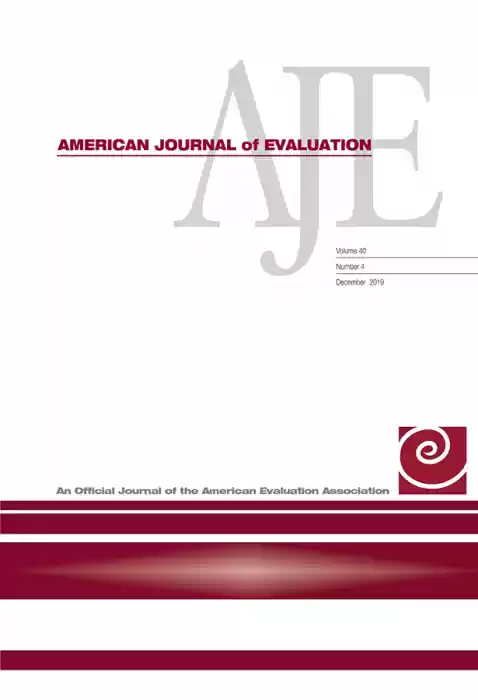

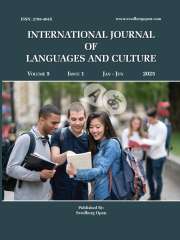
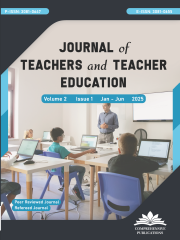
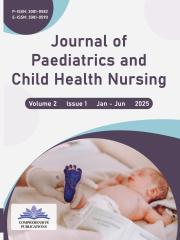
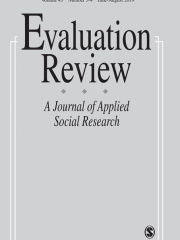
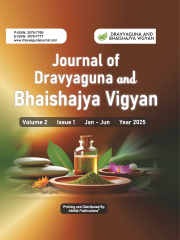










Reviews
There are no reviews yet.